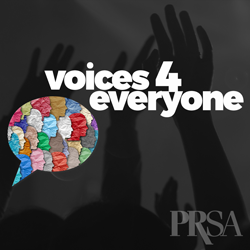Civility goes beyond mere politeness, good manners and courtesy.
Civility was not considered a moral virtue by the major philosophers of the antiquity. Rather, it was relegated to etiquette, often considered a badge for class distinction. However, I believe that civility is a question of morality because it is an expression of respect of other human beings and respect is a core ethical value. Respect will prevent, and hopefully eliminate, uncivility.
The etymology of the word civility comes from the Latin “Civitas,” which means citizen. Good citizenship implies respect for our fellow citizens, our institutions, conventional norms of behavior and the law.
Some claim that their nefarious communication is protected by the freedom of speech guaranteed by the Constitution. It is true; however, the law will intervene when boundaries are crossed into illegality. We should also remember that what is allowed by the law is not necessarily the right thing to do.

As Fred Zilian, a longtime educator, wrote in his February 2017 article “Civilization Is Dependent Upon Civility” published in The Newport Daily News, “For when human dignity and respect are not upheld, soon neither will the basic human rights of the Western tradition: freedom of speech and of dissent, and the pursuit of happiness, among others. Taken to the extreme, incivility will eventually lead to the trampling of human beings.”
Incivility can lead to the nastiness that can degenerate to anarchy and violence. The loss of civil society is a major reason for the disintegration of societies and for the decline, and ultimately the fall, of civilizations.
The state of our civil public discourse in America has taken a turn for the worse in recent years. In a 2013 survey conducted by Weber Shandwick, Powell Tate and KRC Research, 70 percent of Americans said that they believe incivility has reached crisis proportion and 81 percent think that incivility is leading to violence. Social media and the internet have propelled incivility in a dramatic way. We are witnessing vitriolic rhetoric, demonization, verbal abuse and shaming as never before.
Frank Wehner, a senior fellow at the Ethics and Policy Center, said: “When civility is stripped away, everything in life becomes a battlefield, an arena for conflict, an excuse for invective. Families, communities, our conversations and our institutions break apart when basic civility is absent.”
PRSA’s new initiative, Voices4Everyone, promotes a “national conversation on building trust and civic engagement.” Any such conversation that is not embedded in a culture of civility is destined to fail.
Incivility is a communication barrier. As PR professionals, we must lead by example as to how we communicate with our stakeholders, such as our colleagues, our clients or the media.
Below are some specific behaviors that can be helpful in achieving that end:
- Showing respect for our fellow human beings, no matter who they are
- Staying humble, remembering that we never have all the correct answers
- Avoiding provocation or what could be perceived as one such as using demeaning language
- Striving to be an engaged listener — there is always something to learn from a different point of view
It may also be helpful to do some soul-searching. How sure are we that we do not hide to ourselves and to others some bitterness and anger toward an individual or a group? As King Solomon once said, “As a man thinks, so he is.” Expressions of anger or even hatred originate from our inner selves.
We should also resist the current trend and not accept it as the “new normal.” It is not! It is unacceptable. We need to be proactive and use whatever influence we have and in how many ways we can to rally others to do the same.
Finally, it is very important that when we witness any abusive activity, we should firmly denounce it and hold offenders accountable for their actions.
Emmanuel Tchividjian is the principal and owner of the Markus Gabriel Group, an ethics and communication consulting practice. He worked for nearly 20 years as a senior vice president and chief ethics officer at Ruder Finn. He is a member of PRSA’s Advocacy Committee. Email: emmanueltchividjian@gmail.com. This post was developed for the Voices4Everyone initiative.
[Photo credit: raw pixel]







It is also important to know that Emmanuel Served exofficio on The PRSA Board of Ethics and Professional Standards (BEPS) for many years. His input into the rewriting of our Code of Ethics
and the development of the Code’s 18 supplemental updates, Ethics Standards Advisories (ESA), was important and helpful, as is his continued service on the PRSA Advocacy Committee. His personal interest and help to so many of over the years has been a major contribution to our industry’s understanding and application of ethical principles, problem solutions and questions. Perhaps most important of all his constantly inspiring us to continue focusing on finding the ideal
behaviors that ethical public relations practice promises.
Emmanuel this is the ultimate statement for us as individuals and for our profession.
Especially today on March 11 it is both healing and a demand for personal commitment.
Your message made me cry in sadness for what exists and with hope for what we can become.
We must see that it is read by millions starting with leaders of our government and our communities.
An excellent column, Emmanuel…powerful, insightful and practical. Thank you for speaking out.
Emmanuel, everything that you had to say in this is spot on. I remember growing up and constantly being told by my grandfather, “Just because you can, does not mean that you should.” I think that a lot of people in this country have lost the idea that it is okay to disagree. I would even push that notion further and say that it is good that we disagree. Our abilities to be rational and have different viewpoints on issues is as you mention, are a core staple to civil society. Afterall, as tip four implies, listening to differing opinions could help you learn a thing or two. It is hard to fathom why a person would denigrate another human just because their ideas differ. But, you see, it is much easier to scream and berate than it is to prove a logical point. Unfortunately, it seems as though we have entered an age where logic and rational have been replaced by emotions, fear, and intimidation. The question is, can we right the ship before it is too late, or are we already destined to run aground.